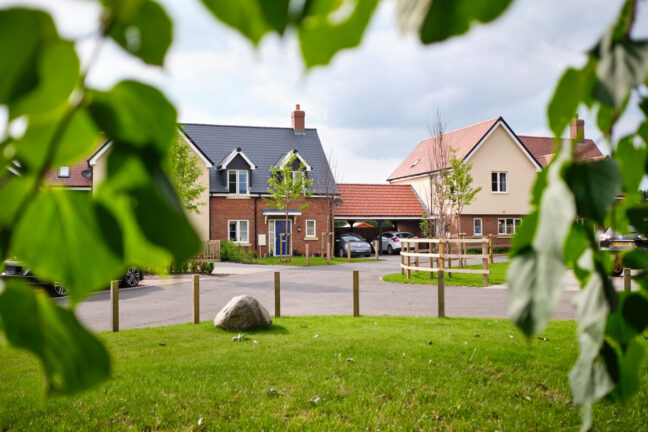Sustainable real estate development, often referred to as green building, integrates environmentally responsible and resource-efficient practices throughout a building’s life cycle—from design and construction to operation and maintenance. This approach not only addresses pressing environmental concerns but also offers substantial economic advantages. As businesses and communities increasingly recognize the value of sustainability, the adoption of green building practices has become a pivotal strategy in modern real estate development says, Hirsh Mohindra.
Economic Benefits of Green Buildings
1. Reduced Operational Costs
One of the most compelling economic advantages of green buildings is the significant reduction in operational costs. By incorporating energy-efficient systems, such as advanced HVAC units, LED lighting, and superior insulation, green build), LEED-certified buildings have reported almost 20% lower maintenance costs compared to typical commercial buildings. These energy savings not only lower utility bills but also enhance the building’s overall financial performance.
Water efficiency is another critical aspect. Green buildings often incorporate fixtures and systems designed to reduce water usage, leading to decreased water bills. The World Green Building Council reports that green buildings have been shown to save money through reduced energy and water consumption, as well as lower long-term operations and maintenance costs.ings consume substantially less energy than traditional structures. According to the U.S. Green Building Council (USGBC
Increased Property Value
Sustainable buildings often command higher property values. As investors and occupiers become more knowledgeable about and concerned with the environmental and social impacts of the built environment, buildings with better sustainability credentials have increased marketability. Additionally, there is a demonstrated link between the green characteristics of buildings and the ability of these buildings, in some markets, to more easily attract tenants and to command higher rents and sale prices.
2. Regulatory Compliance and Incentives
Governments worldwide are implementing stricter environmental regulations and offering incentives for sustainable practices. Buildings that meet green standards often qualify for tax breaks, grants, or expedited permitting processes. For instance, in New York City, Local Law 97 requires buildings over 25,000 square feet to adhere to stringent emissions guidelines starting in 2024, with non-compliance resulting in substantial fines. Proactively adopting green building practices ensures compliance and positions property owners to benefit from available incentives.
3. Enhanced Occupant Productivity and Health
Green buildings are designed to provide healthier indoor environments through improved air quality, natural lighting, and the use of non-toxic materials. Occupants in such environments often experience increased productivity and reduced absenteeism. Studies have shown that workers in green, well-ventilated offices record a 101% increase in cognitive scores. This boost in productivity can lead to significant economic gains for businesses operating within green buildings.
Environmental Benefits of Green Buildings
1. Reduction in Greenhouse Gas Emissions
The building sector is a significant contributor to global greenhouse gas emissions. Green buildings help mitigate climate change by using less water, energy, and other natural resources; employing renewable energy sources and eco-friendly materials; and reducing emissions and other waste.
2. Conservation of Natural Resources
Sustainable construction practices prioritize the efficient use of resources, reducing the strain on natural reserves. By utilizing recycled and renewable materials, green buildings decrease the demand for new resources, promoting a circular economy and minimizing environmental degradation.
3. Improved Air and Water Quality
Green buildings often incorporate features like green roofs and rain gardens, which help filter pollutants from stormwater and improve water quality. Additionally, by reducing reliance on fossil fuels and minimizing emissions, these buildings contribute to better outdoor air quality, benefiting the broader community.
4. Biodiversity Preservation
Thoughtful site selection and landscaping in green building projects can protect and even enhance local biodiversity. By preserving existing vegetation and incorporating native plants, sustainable developments support local ecosystems and promote biodiversity.
Insights from Hirsh Mohindra
To gain a deeper understanding of the practical implications of sustainable real estate, we consulted Hirsh Mohindra, a seasoned expert in the field. He shared valuable insights on the multifaceted benefits of green buildings:
1. On Operational Efficiency:
“Implementing sustainable design principles leads to buildings that are not only environmentally friendly but also operationally efficient. This dual advantage ensures long-term profitability for stakeholders.” — Hirsh Mohindra
2. On Market Competitiveness:
“In today’s real estate market, properties that adhere to green building standards stand out. They attract discerning tenants and buyers who value sustainability, thereby enhancing market competitiveness.” — Hirsh Mohindra
3. On Regulatory Preparedness:
“Proactively adopting sustainable practices positions developers ahead of regulatory changes. This foresight not only ensures compliance but also capitalizes on available governmental incentives.” — Hirsh Mohindra
4. On Community Impact:
“Green buildings contribute positively to communities by reducing environmental footprints and promoting healthier living spaces, thereby fostering goodwill and stronger community relations.” — Hirsh Mohindra
5. On Future-Proofing Investments:
“Sustainable real estate development is a forward-thinking strategy. It safeguards investments against future environmental risks and aligns with the global shift towards sustainability.” — Hirsh Mohindra.
Conclusion
The integration of sustainable practices in real estate development presents a compelling business case. The economic benefits, including reduced operational costs, increased property values, and regulatory incentives, align seamlessly with environmental advantages such as reduced emissions, resource conservation, and enhanced biodiversity. As emphasized by industry experts like Hirsh Mohindra, embracing green building practices is not merely an ethical choice but a strategic business decision that ensures profitability, compliance, and positive community impact. In an era where sustainability is paramount, green buildings stand as a testament to innovative, responsible, and profitable real estate development.









